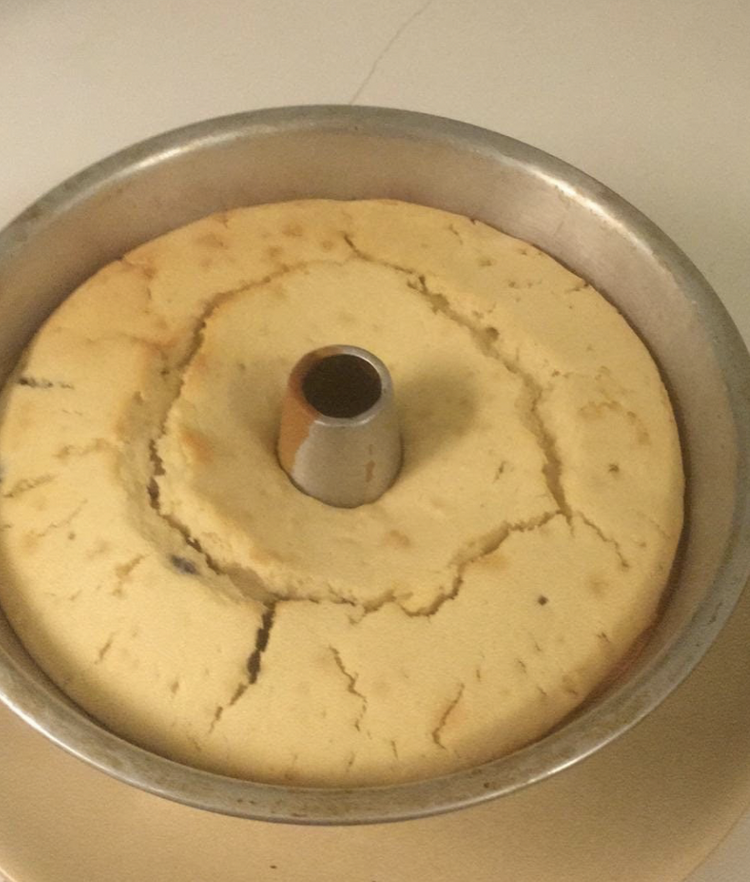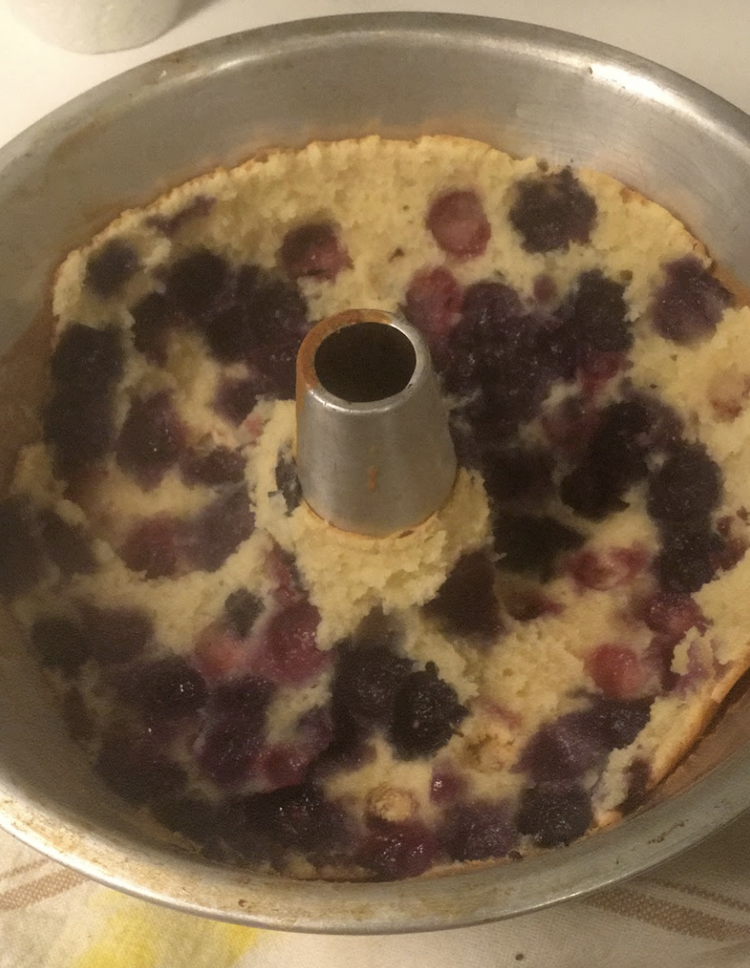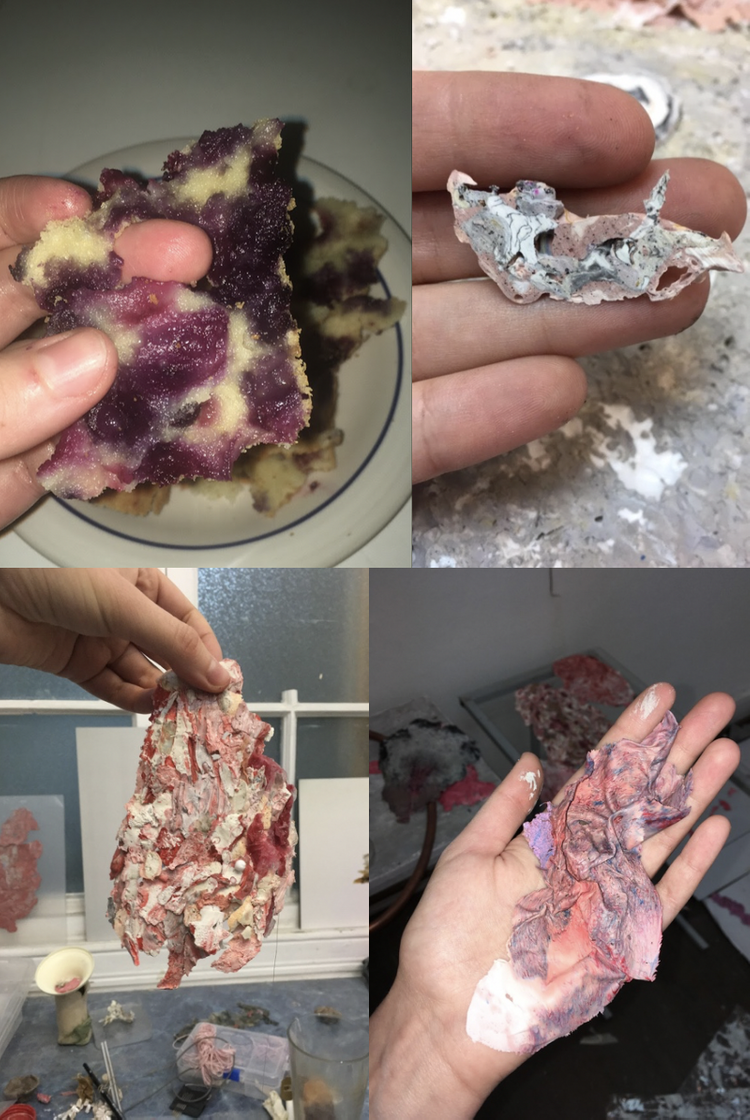A Time for Pie
Elizabeth Burmann
→MFA SC 2020
These days everyone is saying that time is nothing anymore, or doesn't mean anything. I'm not quite sure about that, but time has definitely revealed its own self-regulation, unraveling the random or relative boundaries we impose over daily life to make it feel “normal.”
I feel that emotional scales have shifted too. What seemed important—“BIG ISSUES,” like finishing my Master’s degree, preparing a thesis show under a mental plan of stress and success—doesn't really bother me anymore. It's weird how certain preoccupations just vanished into another orbit, another dimension.
Is this what they call a paradigm shift? I don’t know, but I do feel like I’ve just fallen into a giant pocket. I always thought of pockets as containers of their own time: like if you leave something inside a pocket—a candy wrapper, a loose button—that thing will remain there in a time that will be past for you but a different present-tense for the in-pocket thing. Once you encounter the thing forgotten in the pocket again, both time dimensions meet. Yes, I'm in a pocket right now, along with this city, this New England house, its furniture and dust, which after June date TBD I won't see again. All of this will remain in a pocket that doesn't fit any of my future clothes.
Inside this new order of the pocket, mundane, tiny things have become incredibly important. Stress, frustration, and excitement have transformed into the (meta) quotidienne, making everything that happens inside highly responsible for preserving well-being and moods. Take, for example, a cake I made last week. By now, with water under the domestic bridge, I have forgiven this cake, but last week it made me feel so upset—it really ruined my day.
The cake was going to be a great cake; I had been craving it, my friend Isidora’s recipe: blueberry cake, soaked in coffee. We ate it once that late summer under the vine. Perfect. I'm not going to work on thesis today, I'm going to procrastinate in the kitchen. I ask her for the recipe.
I often improvise a little bit, and cut out sugar or stuff like that, but I don’t much this time, because there’s no room for failure in this quarantined house.
The recipe includes everything but the blueberries. “Add blueberries,” Isidora says. So I do, I add a bunch of blueberries, and then more, and more. Why save any of them? If I'm not giving it my all, why even do it? It’s gonna be so good.
The cake is in the oven; it’s rising. I'm excited. In Santiago my cakes would never rise. It was the fault of my oven there, surely. This oven is reliable. I’m happy. I’m talking on the phone with Ives, telling him how good the cake is looking, and how bad the oven in Santiago was. I'm having a good time, I'm laughing, making jokes on the phone. Spending your day baking is great! Good endorphins! Those things you hear about baking healing depression might be absolutely true.
I check the cake: it’s not so golden on top. Ives tells me I should be careful not to burn the bottom. I'm indecisive. Maybe it's burning on the bottom. It has to be perfect. I wait 2 minutes and take it out, send Ives a picture.

It’s a little pale. I put it back in the oven, and a minute later second guess myself and take it out again. Why keep waiting? Why am I being so insecure? It’s just a cake, it's fine.
I flip it over and start banging the mold with a wood spoon. It's kind of hard. It doesn't want to come out, I’ll call you later, Ives.
This mold is tricky. I have never used one like this before. But it will work out. I will make it look like a cake-cake, a real cake, I think, and then … disaster.

Damn, the bottom falls out, revealing a pocked layer of blueberries. I feel so stupid. It’s obvious, it’s science! It was probably too hot. I should have waited for the cake to cool down before dislodging it. But this wasn’t in the recipe. Now I'm mad at Isidora. I wanted the secret! The whole secret for the perfect cake.
Deflated, but just maybe it looks cute? I send a picture to Ives. ”It's fine,” he says. “It looks like granite. It looks like your work actually.” I wonder what he means … to which work?
It looks similar to many of my hand selfies for sure.

But he said granite, so maybe he meant this:
 Aglomeron-foam, 2017.
Aglomeron-foam, 2017. Ives’s comparison to my work, which favors the process and experience over the artifact, gives me sudden hope. Maybe it was just an aesthetic mistake; maybe the cake will taste good.
The crust is good, but the cake inside is raw. I eat it anyway. I'm sad, I'm angry with myself, and my stomach hurts, because of course, eating hot, raw cake is not the best idea. I’m eating my frustration to see if it disappears.
The next day, my cousin sends a beautiful picture on the family chat of a cake that she made. Accepting my failure I send mine. ”That mold is so hard,” my grandmother says. I knew it! It was the mold, not me! Then she adds, ”I can't make cakes. They never rise! I'm good at pies though …”
That's it! Thanks, Abi, I’ll follow your example. No more cakes, with all their precious cooking conditions and whimsical porosity, just sweet, simple, solid pies. I’m keeping that lesson for culinary/emotional survival these days not in my pocket but just below my sleeve.